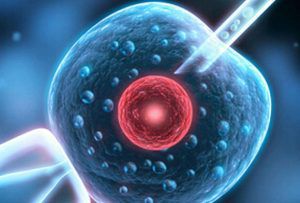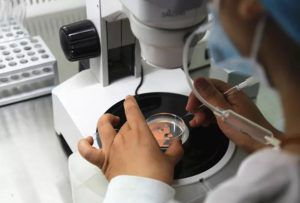As technology advances and medical conditions continue to improve, more and more families are choosing to find pregnancy solutions in Kyrgyzstan. As a country with rich experience in assisted conception and advanced medical technology, Kyrgyzstan offers infertile patients a new way to realize their fertility dreams. In recent years, Kyrgyzstan's IVF technology has made remarkable progress, and its success rate and service level are widely recognized, attracting many patients from home and abroad.
Kyrgyzstan has a highly qualified medical team, which not only has rich clinical experience in infertility treatment, but also has an international outlook and advanced technical means. The support of the government and the continuous innovation of the medical institutions have made Kyrgyzstan a place of choice for many families in the field of assisted reproduction.
In addition, the relatively low cost of healthcare in Kyrgyzstan, especially when compared to Europe and the United States, is a great attraction for many families on a budget. Next, we'll go into more detail aboutThe whole process of in vitro fertilization in Kyrgyzstan, its costs and the relevant legal provisionsto help families in need better understand and choose this avenue of assisted conception.

Full process of in vitro fertilization in Kyrgyzstan
The process of in vitro fertilization in Kyrgyzstan follows much the same steps as in other countries, and consists mainly ofInitial counseling and evaluation, treatment planning, ovulation induction therapy, egg and sperm retrieval, in vitro fertilization, embryo culture and screening, embryo transfer, and subsequent pregnancy management. Below is a detailed description of each step:
1. Initial consultation and assessment
Prior to traveling to Kyrgyzstan, couples are required to undergo a comprehensive physical examination, including blood tests, ultrasounds, and more. Bringing these reports with them for the initial consultation with the doctor, the doctor will take a detailed look at the patient's medical history, family history and personal circumstances to assess their suitability for IVF treatment. This process not only helps the doctor to develop a personalized plan, but also gives the patient a clearer understanding of the entire treatment process.
2. Development of treatment programs
Based on the results of the initial examination, the doctor will customize a treatment plan for the patient. This step can be done in a face-to-face meeting, over the phone or by video conference. The doctor will explain each step of the program in detail and answer any questions the patient may have to ensure that the patient understands and agrees to the treatment plan.
3. Ovulation promotion therapy
After a treatment plan has been developed, the female patient will undergo ovulation induction therapy. The doctor will inject medications that promote ovulation in the ovaries to increase the number and quality of eggs. During this period, the doctor will monitor the ovarian response in real time and adjust the medication regimen according to the patient's specific situation to ensure optimal treatment results.
4. Egg and sperm retrieval
After the ovulation treatment has achieved the desired results, the doctor will perform an egg retrieval procedure at the appropriate time. The procedure is usually performed under anesthesia and is simple and relatively painless. The male partner is required to provide a sperm sample at the same time for in vitro fertilization. The sperm sample can be obtained either through natural sperm retrieval or surgical sperm retrieval, depending on the patient's condition.
5. In vitro fertilization (IVF)
The retrieved egg and sperm are combined in the laboratory for in vitro fertilization. This process needs to be carried out under strictly controlled laboratory conditions to ensure the success and safety of the fertilization process. Successfully fertilized embryos are cultured in the laboratory for a few days for the next step of screening and transfer.
6. Embryo culture and screening
After fertilization, the embryos are cultured in the laboratory for up to 5-6 days, during which time they undergo a rigorous screening process to select the embryos that are most likely to successfully implant. This step is especially critical as the quality of the embryos directly affects the ultimate success of the pregnancy.
7. Embryo transfer
Screened, high-quality embryos are transferred back into the woman's uterus. Embryo transfer is a simple and painless procedure that usually does not require anesthesia. After the transfer, the patient is required to have proper rest and follow up care as directed by the doctor.
8. Follow-up monitoring and pregnancy management
After embryo transfer, the doctor will monitor the pregnancy on a regular basis, including blood tests and ultrasounds. The doctor will provide pregnancy management advice based on the patient's specific situation to ensure a safe and smooth pregnancy throughout.
Kyrgyz IVF Costs
The relatively low cost of IVF in Kyrgyzstan is one of the major reasons why it attracts many patients. Below is a detailed analysis of the cost of IVF in Kyrgyzstan:
Overall costs
In Kyrgyzstan.The total cost of IVF treatment usually ranges from $5,000 to $8,000The exact cost depends on the complexity of the treatment program and individual differences. This cost is significantly lower than the cost of IVF in Europe and the United States, making it affordable for more families.
Cost components
The cost of in vitro fertilization assistance consists of the following main components:
- Initial screening costs: These include blood tests, ultrasounds, etc. and usually range from $500 to $1,000.
- Cost of medications: The cost of ovulation stimulating drugs and other adjuvant medications is about $1,000 to $2,000.
- Surgical Costs: Includes the cost of the egg retrieval procedure and the embryo transfer procedure, which is approximately $1,500 to $2,500.
- Laboratory fees: for in vitro fertilization and embryo culture, about $1,500 to $3,000.
Other expenses
In addition to the cost of basic treatment, patients need to consider other associated costs, such as travel and accommodation expenses and translation services. These costs vary depending on individual needs and place of residence, and usually range from $1,000 to $3,000.
Interpretation of Kyrgyz law on in vitro fertilization
In Kyrgyzstan, the legal framework for in vitro fertilization is relatively well-developed and protects the legal rights of patients and medical institutions. The following is an explanation of the law on in vitro fertilization in Kyrgyzstan:
Legal framework
Kyrgyzstan's laws and regulations on in vitro fertilization are clear and set out the conditions and procedures for the use of assisted reproductive technologies. In accordance with the relevant legislation, all applications of assisted reproductive technologies must be subject to strict authorization and regulation to ensure their legality and safety.
Legal surrogacy is permitted in Kyrgyzstan, but there are strict requirements for the qualifications of surrogate mothers. A surrogate mother must be between the ages of 20 and 40 and have at least one child of her own. In addition, she must pass a medical examination to prove physical and mental health. If the surrogate mother is married, the written consent of her spouse is also required.
Kyrgyz law permits the use of third-party assisted reproduction techniques, subject to the conclusion of a notarized agreement on third-party assisted conception. The agreement specifies the rights and obligations of each party and ensures that the entire process of assisted conception is transparent and legal. In addition, a surrogate mother cannot also be an egg donor to prevent potential ethical and legal problems.
summarize
Kyrgyzstan, as a country with advanced and relatively low-cost IVF technology, offers infertile patients a good opportunity to realize their fertility dreams. Its regulated legal framework and high-quality medical services have made Kyrgyzstan a key player in the international assisted reproduction market. By understanding the full process of IVF in Kyrgyzstan, its costs and relevant legal regulations, patients can better plan and choose the right fertility program for themselves and realize their family's desire to have a child.





